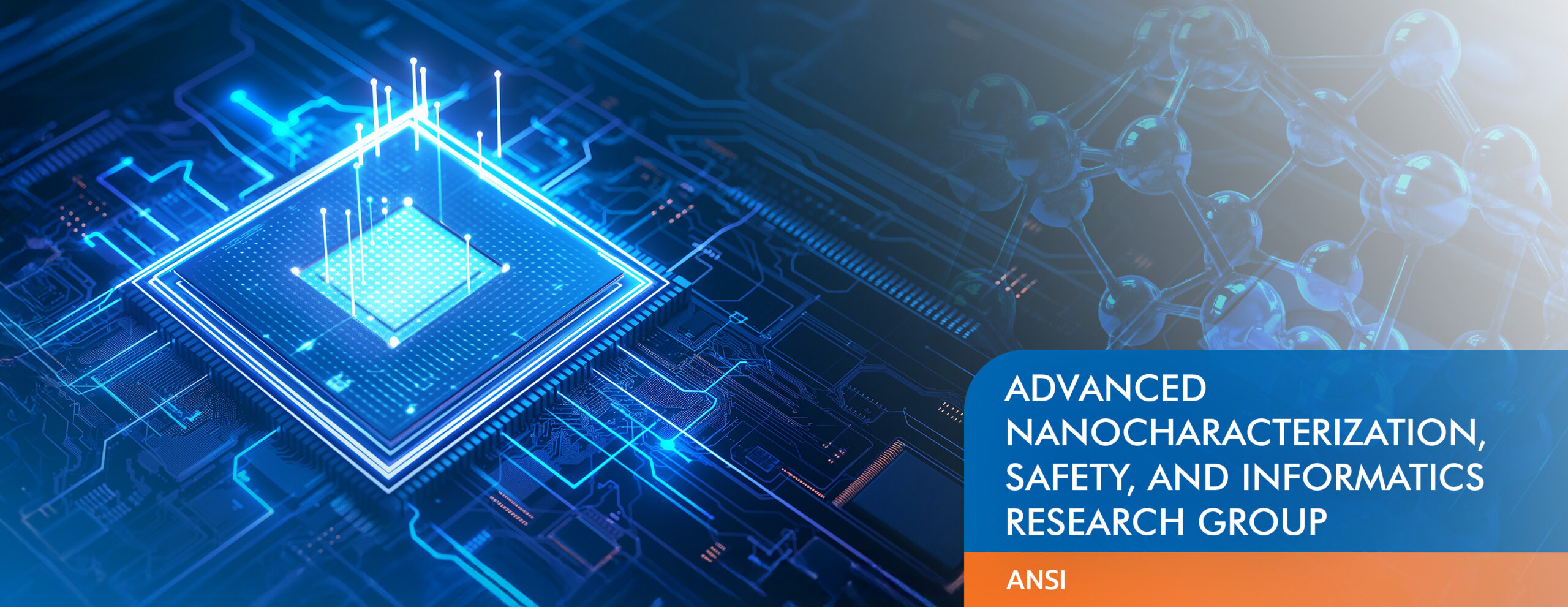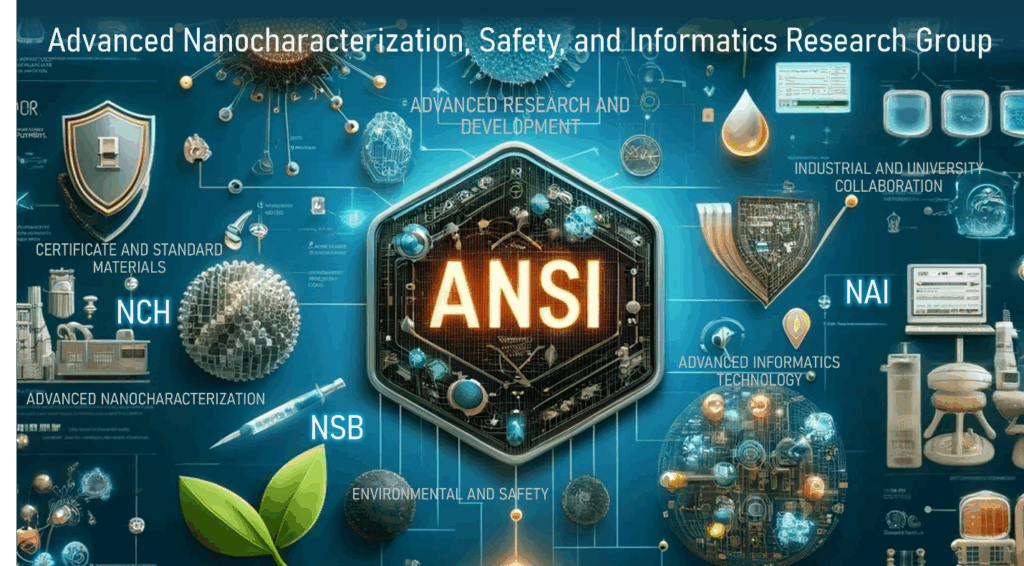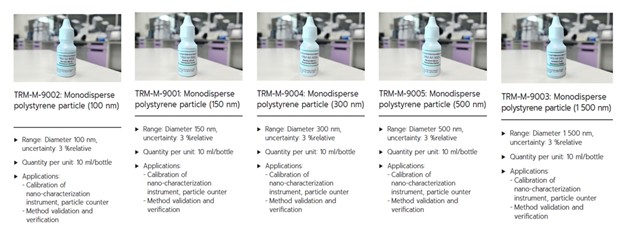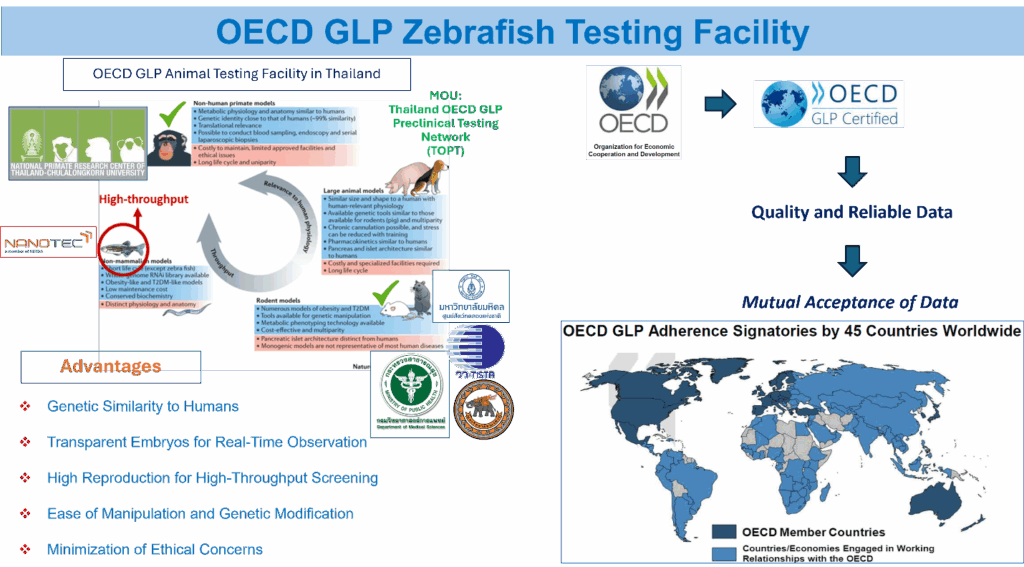
ADVANCED NANOCHARACTERIZATION, SAFETY, AND INFORMATICS RESEARCH GROUP
The Advanced Nanocharacterization, Safety, and Informatics Research Group (ANSI) is dedicated to cutting-edge research and development in the fields of nanometrology and nanocharacterization, with a particular emphasis on the properties of nanomaterials and their implications for environmental and human health safety. In addition to advancing knowledge in nanoinformatics and artificial intelligence, ANSI offers innovative solutions that arise from convergent thinking—a multidisciplinary approach that integrates theoretical foundations, applied physics, systems engineering, process design, and prototyping to address real-world industrial challenges.

Our group actively engages in collaborative research and development with industrial partners, leveraging biological models, AI-based informatics, and state-of-the-art nanotechnology to co-create solutions tailored to industry needs. Furthermore, ANSI plays a proactive role in developing nanotechnology standards, particularly in setting industrial benchmarks for nanoparticles and nanotechnology-based products, ensuring both quality and safety in their deployment across sectors.
Our Key Research
Key Research 1 : Development of polystyrene particles as Thailand reference materials (TRMs)
The research project titled “Development of Polystyrene Particles as Thailand Reference Materials (TRMs)” aims to produce polystyrene particles which will be certified by National Institute of Metrology Thailand (NIMT) as Thailand reference material (TRM). Polystyrene latex have been used to calibrate instruments such as scanning electron microscope (SEM) and dynamic light-scattering technique (DLS) to ensure their measuring accuracy. Currently, the country relies heavily on imported certified reference materials (CRMs), which are often costly. This project seeks to develop polystyrene particles with uniform size distribution, high stability, and well-characterized properties in accordance with international standards. The initiative is expected to enhance Thailand’s metrological capabilities, strengthen scientific infrastructure, and reduce dependency on foreign materials. Moreover, the resulting TRMs will support quality control efforts in both industrial applications and environmental research.

Key Research 2 : Enhancing the Capability of Zebrafish Testing Laboratories through OECD GLP Compliance to Strengthen the Competitiveness of Thailand’s Cosmetics, Medical and Healthcare, Agriculture, and Food Sectors
Thailand has been officially recognized as an adherent to the Mutual Acceptance of Data (MAD) system under the OECD Principles of Good Laboratory Practice (GLP) for non-clinical safety testing of chemicals in seven product categories. This recognition aims to reduce animal testing, minimize redundant testing, and support exports to over 45 OECD member countries. Test reports from OECD GLP-certified laboratories can be submitted for regulatory approval in these countries, streamlining registration processes and reducing costs for international market access. Currently, Thailand has only seven OECD GLP-certified laboratories, none of which utilize small vertebrate models such as zebrafish. Zebrafish are internationally recognized as a valuable model organism due to their genetic similarity to humans (up to 70%), presence of key organs found in humans, and suitability for pharmacological and toxicological testing. Their advantages include requiring smaller sample volumes, shorter testing times, lower costs, and the ability to test large numbers of organisms per experiment. Therefore, establishing an OECD GLP-certified zebrafish testing laboratory in Thailand would strengthen the country’s national quality infrastructure, reduce reliance on larger vertebrate animals, shorten testing timelines, and lower associated costs. Ultimately, this would contribute to the development of safety data for food and drug-related substances, support Thailand’s industries in achieving international safety standards, and decrease long-term dependence on overseas testing services.

Key Research 3 : Developing Computer-Based Models to Improve Diagnostic Tools for Mild Cognitive Impairment (MCI) Using an Integrative Approach that Combines Quantitative Models in Computational Neuroscience and Artificial Intelligence
Early and accurate dementia detection is crucial for timely intervention and care. However, current diagnostic methods can be subjective and time-consuming. In partnership with King Chulalongkorn Memorial Hospital and King Mongkut’s University of Technology Thonburi, under the grant supported by the National Research Council of Thailand, we have been developing deep-learning-based methods to address this critical need. Our methods not only achieve superior detection performance compared to state-of-the-art approaches, as evidenced by improvements in accuracy, F1-score, and area under the curve, but also offer a unique advantage: visual explainability. The AI’s detection results are accompanied by visual explanations that align with the interpretations of clinical experts, including neurologists and neuropsychologists. This explainability is crucial for building trust in the AI’s output and facilitating clinical adoption. We are currently deploying our methods for testing in a web application, marking an important step towards real-world implementation.

